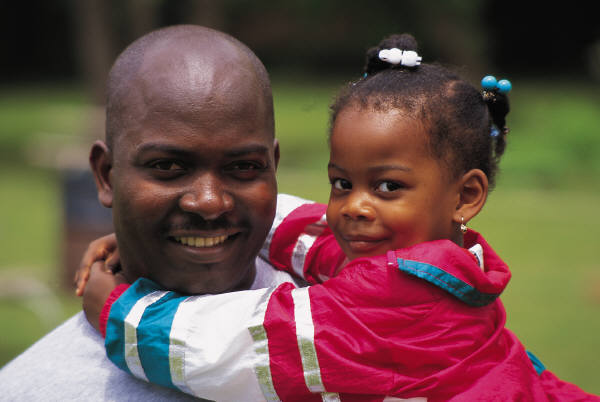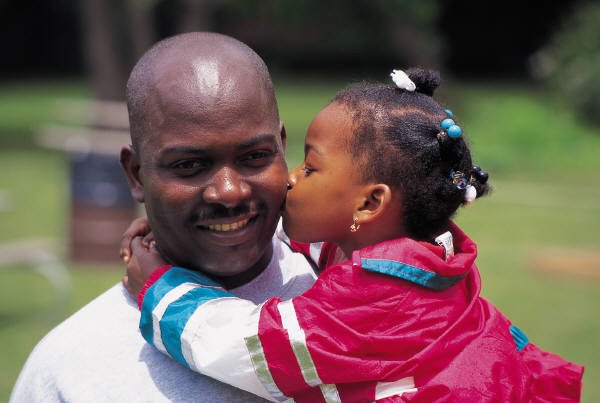Information for Families: Helping Children Who have Word Retrieval Difficulties
- Details
- Created: Saturday, 03 December 2011 15:49
- Updated on Sunday, 19 March 2017 10:24
Cite this article as:
Bowen, C. (2011). Information for Families: Helping children who have word retrieval difficulties. Retrieved from http://www.speech-language-therapy.com/ on [insert the date that you retrieved the file here].
What is a word-finding difficulty?
In simple terms the expressions “word retrieval problem” or “word finding difficulty” imply that the person knows and understands the word, and has used it correctly before. However, they have difficulty retrieving such known words at times. Children with developmental language disorder (DLD) and adults with language disorders are frequently found to have word retrieval difficulties. Often when a person (child or adult) is having difficulty retrieving a word they will have the sense that it is “on the tip of their tongue”, or that they "know it, but can't remember it": a state of affairs familiar to all of us; at other times they seem simply to “go blank”.
Assessment
Word retrieval difficulties sometimes occur in isolation, but they are often accompanied by problems in other areas of language function...all of which can be addressed once they are properly identified.
It is common for children with developmental language disorders (aka specific language impairments) and childhood apraxia of speech (CAS) to have word finding difficulties.
Assessment by a qualified speech and language professional is strongly advised. Assessment comprises a full speech and language test battery administered by a speech-language pathologist / speech and language therapist.
Among other components, the ideal battery includes standardised measures of receptive and expressive vocabulary, as well as informed observations of conversation skills (discourse) and narrative.
Older test subjects will often be able to tell the assessor about aspects of their word retrieval difficulties. Word retrieval ability cannot be fully assessed in isolation, but has to be seen in the context of the individual's other cognitive, social and linguistic skills.
Activities
About the activities
- These activities are intended for children.
- They may be fun for children who do NOT have word retrieval difficulties, but should not be used for a "competition" with children who DO.
- Not all of the activities will suit all children - so be selective.
- Put the emphasis on listening, thinking and speaking.
- The activities are aimed at having the child retrieve known words - not at extending the vocabulary by teaching new words.
- If possible, use a minimum of visual cues at first. If the word to be “retrieved” does not come easily for the child, provide an auditory cue (e.g., say the first sound or syllable of the word) or a verbal clue (e.g., "it rhymes with...", "it starts with...).
- If auditory cues are not working provide more scaffolding with written sounds or words, and pictures.
- Give the child time to think, but don’t leave it so long that they are struggling to find the word. Rather than letting them persist unsuccessfully, tell them the answer, and go on with the next few items. Then ask them the one that was difficult again.
- Aim for a high success-rate to encourage motivation and confidence.
- Adapt the tasks to suit the (developmental) age of the person.
- Find more activities at Five From Five: Parent Resources: Vocabulary
Talk about words and word-meanings
As natural opportunities arise talk about such topics as “Why is Big Bird called Big Bird?” Talk about people being named after other people. Talk about why certain names might have been chosen for pets and TV and movie characters (Cookie Monster, Rugrats, Inspector Gadget, Uncle Scrooge, The Fat Controller, The Lion King, etc). Try to work these conversations in around topics of genuine interest to the child.
Read, read, read, and read!
Here are some suggestions:
- Just about every book in the "Beginner Books"/Dr Seuss series, including “I’ll Teach my Dog 100 Words” and "Hop on Pop".
- Books about rhymes.
- Books about opposites.
- Books about word classification (i.e., semantic classes): e.g., vehicles, tools, occupations, etc, involving knowing the names of objects or entities within a class.
- Books about animals and their young, involving knowing the precise names for animals’ offspring (e.g. horses have foals, cows have calves, etc), and the correct names for some common animals according to gender (horse: mare, stallion. filly, colt).
- Books about names.
- Books that contain high repetition of the same word.
- Books that rhyme e.g. The Diggingest Dog, One Duck Stuck
- Books that tell a story e.g. The Cat in the Hat, Robert the Rose Horse
- Books that contain silly rhymes*, for example "There's a Wocket in my Pocket" by Dr Seuss. It includes such silliness as:
"Did you
ever have the feeling
there's a WASKET
in your BASKET?
...Or a NUREAU
in your BUREAU?
...Or a WOSET in your CLOSET?
Sometimes
I feel quite CERTAIN
there's a JERTAIN
in the CURTAIN..."
*Don't read this sort of thing if it irritates you or your child. It's not to everyone's taste!
Play impromptu word-games
Games involving transforming one part of speech to another are particularly helpful, e.g.:
- Today I am riding, yesterday I ... (rode)
- Today I am driving, yesterday I ... (drove)
- Today I am sleeping, yesterday I ... (slept)
- Yesterday I rode, tomorrow I will ... (ride)
Incorporate cloze-tasks into story-reading
When you read stories, recite rhymes or sing songs, include "obvious" sentence completion routines, e.g. 'Little Jack Horner sat in a ...' (corner); 'Baa baa black sheep, have you any...' (wool).
Read riddle books and tell jokes
Choose knock-knock jokes, riddles, etc that rely upon accurate word-retrieval to make them funny.
Make up silly words
Make up silly words for familiar rhymes, e.g.: "Baa baa black sheep have you any... spaghetti?" "Humpty Dumpty had a great... grandmother".
Play word-classification games
These games might include ones such as: “See how many boys’ names you can think of in one minute. Time yourself while you do it”. Other categories that might be fun or interesting include:
- tools
- games
- girls' names
- drinks
- movies
- tools
- movies
- toys
- animals
- vegetables
- makes of car
- names that either a boy or a girl can have: "unisex names" (Kim, Alex, Jo, Bailey...)
- sports
- clothes
- flowers
- colours
Play “name the category”
This can be done like a cloze task, for example, "red, blue, green, orange and pink are all ..."; "lions, tigers, monkeys and elephants are all ..."
Play “pick the word that does not belong”
For example, "Which one is the odd one out: cat dog tree mouse
Play "which two words go together?"
For example: "watch pig nail clock"
Play sentence completion (“cloze”) games
For example: "A house is a place to live. An office is a place to ..." "A nursery is a place to buy plants. A Post Office is a place to buy ..."
Play games involving synonyms
For instance, “Can you think of another word that means big?" "Can you tell me another word for smart?"
Play word-association games
For example: "pilot goes with..."(plane), "cab goes with..."(driver), "ship goes with..."(sailor)
Devise simple games involving similarities
For example, “What is the same about a sheep and a cow?” "A train and a plane are both..."
Play games involving antonyms
Do this as a sentence completion (cloze) activity (e.g., "The opposite of hot is ...") or use a question-and-answer format (e.g., "What is the opposite of hot?"), or as a confrontation naming task using pictures in which the child has to name "opposites pictures" as rapidly as they can (e.g., hot cold, wet dry, big little, fast slow, deep shallow, apart together).
You can have a lot of fun doing this at sentence level:
Adult: I live in a little house.
Child: I live in a big house.
Adult: I love cauliflower.
Child: I hate cauliflower.
Adult: I broke the ladder.
Child: I mended the ladder.
Adult: My car is old.
Child: My car is new.
Play word games involving differences
For example, “What is different about a bird and a plane? They can both fly, but they are different because ...”
Play “What comes next?”
For example:
A E I O ...
A B C D E F ...
Monday Tuesday Wednesday ...
Summer Autumn Winter ...
One, two, three ...
First second third ...
Laa-Laa, Tinky-Winky, Dipsy, and...
Twinkle, twinkle little ...
Citation
Cite this article as: Bowen, C. (1998). Information for Families: Helping Children Who have Word Retrieval Difficulties. Retrieved from http://www.speech-language-therapy.com/index.php?option=com_content&view=article&id=100 on [insert the date that you accessed the file here].


